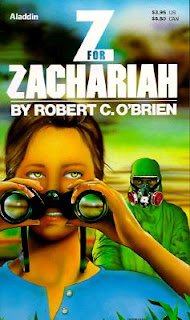Let's Talk About Gaiman
Recently, a friend of mine posted on Facebook about Neil Gaiman's script for the film Beowulf. Personally, I avoided the film as soon as I heard about the changes, specifically that Grendel was Hrothgar's bastard child with Grendel's mother and the dragon was the same for Beowulf. Furthermore, Beowulf is portrayed as a lying, boasting fraud. I'm just not okay with that.
This friend (to return to my opening point) said: "Didn't have to read more than a few pages into Neil Gaiman's script of Beowulf to conclude it's a rotter - but then it completely violates the very thing Tolkien believed made Beowulf powerful. Bad form, dude. Bad form."
I had to agree with her, but then, I also felt I needed to read Tolkien's essay on Beowulf, which I had been interested in since I first read the long poem in high school (yes, I was one of those freaks who liked it in high school).
Inevitably, the conversation (through another of her friends) led to whether Gaiman had actually done anything "wrong" (I use quotations because I'm not sure there's an absolute morality when it comes to how fiction is written and rewritten, except where it is touched on in morality in general). There were comparisons made to Gaiman's short stories "The Problem of Susan" and "Snow, Glass, Apples." The first is Gaiman's response to what is seen as, you guessed it, the problem of Susan in the Chronicles of Narnia, specifically in the final book, The Last Battle. I won't go into that argument, mostly because some of the lovely people below have already discussed it fully enough for my tastes, from both sides of the argument. The second of the stories I mentioned is Gaiman's twisted version of Snow White. Now, I'll be honest. I have not read "The Problem of Susan," apart from excerpts in the blog posts below. I'm still torn about whether to read it because even the people I know who have enjoyed some of Gaiman's other works, including the Beowulf film that started all of this, dislike this short story because Gaiman does not show much respect for Lewis and his theology, despite being a lifelong fan of the books. However, "Snow, Glass, Apples" is arguably a similar treatment (at least to Gaiman's treatment of Beowulf) and I thought that story was an interesting take on the old fairy tale. It's an inversion of sorts in which the evil stepmother is given narrative priority and is turned into the protagonist (and a very sympathetic one at that).
So, why don't I care for Gaiman's Beowulf? Because I think he does to Beowulf (story and character) what the Lord of the Rings films did to Faramir and what the most recent Narnia film did to the story of The Voyage of the Dawn Treader: he has taken a hero and made him not a hero. Does this sort of story work? Yes, when it is well done. Should we exclude Beowulf from the list of stories which can or should be treated in such a way? Not necessarily. I think what bothers me most is that Gaiman has taken the story and, instead of portraying it as a retelling or whatever the hip term is these days, he (and all of the producers and advertisers) make you think that you are in for Beowulf being Beowulf, when you are actually in for someone from primetime TV pretending to be Beowulf.
The episode of Star Trek: Voyager that dealt with Beowulf did better.
***
This friend (to return to my opening point) said: "Didn't have to read more than a few pages into Neil Gaiman's script of Beowulf to conclude it's a rotter - but then it completely violates the very thing Tolkien believed made Beowulf powerful. Bad form, dude. Bad form."
I had to agree with her, but then, I also felt I needed to read Tolkien's essay on Beowulf, which I had been interested in since I first read the long poem in high school (yes, I was one of those freaks who liked it in high school).
Inevitably, the conversation (through another of her friends) led to whether Gaiman had actually done anything "wrong" (I use quotations because I'm not sure there's an absolute morality when it comes to how fiction is written and rewritten, except where it is touched on in morality in general). There were comparisons made to Gaiman's short stories "The Problem of Susan" and "Snow, Glass, Apples." The first is Gaiman's response to what is seen as, you guessed it, the problem of Susan in the Chronicles of Narnia, specifically in the final book, The Last Battle. I won't go into that argument, mostly because some of the lovely people below have already discussed it fully enough for my tastes, from both sides of the argument. The second of the stories I mentioned is Gaiman's twisted version of Snow White. Now, I'll be honest. I have not read "The Problem of Susan," apart from excerpts in the blog posts below. I'm still torn about whether to read it because even the people I know who have enjoyed some of Gaiman's other works, including the Beowulf film that started all of this, dislike this short story because Gaiman does not show much respect for Lewis and his theology, despite being a lifelong fan of the books. However, "Snow, Glass, Apples" is arguably a similar treatment (at least to Gaiman's treatment of Beowulf) and I thought that story was an interesting take on the old fairy tale. It's an inversion of sorts in which the evil stepmother is given narrative priority and is turned into the protagonist (and a very sympathetic one at that).
So, why don't I care for Gaiman's Beowulf? Because I think he does to Beowulf (story and character) what the Lord of the Rings films did to Faramir and what the most recent Narnia film did to the story of The Voyage of the Dawn Treader: he has taken a hero and made him not a hero. Does this sort of story work? Yes, when it is well done. Should we exclude Beowulf from the list of stories which can or should be treated in such a way? Not necessarily. I think what bothers me most is that Gaiman has taken the story and, instead of portraying it as a retelling or whatever the hip term is these days, he (and all of the producers and advertisers) make you think that you are in for Beowulf being Beowulf, when you are actually in for someone from primetime TV pretending to be Beowulf.
The episode of Star Trek: Voyager that dealt with Beowulf did better.
***
Links you may choose to examine on the problem of Susan (the first is Devin Brown's study addressing several arguments against Narnia, including the problem of Susan; the last is a short interview with Gaiman about the story; the rest are other blogs about the issue and the story):
Also, for the curious, Tolkien's essay on Beowulf:



Comments
Post a Comment
What do you think?